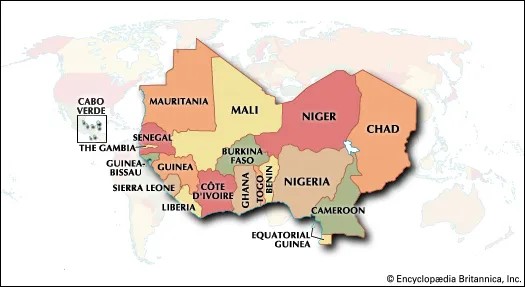Illicit financial flow remains a major challenge for monetary policy managers in West Africa, and despite their efforts, the outcomes have not been satisfactory, leading to colossal losses.
According to Mr Kevin Urama, the Chief Economist and Vice President of Economic Governance and Knowledge at the Africa Development Bank, African countries are losing a staggering $90 billion annually due to illicit financial flows.
As we step into 2024, it is crucial for the Inter-Governmental Action Group against Money Laundering in West Africa (GIABA), the sub-regional leader in the fight against Illicit Financial Inflows (IFFs), to maintain its engagement with critical stakeholders.
This was the dominant theme of the recent summit for Compliance Officers in West Africa, where participants shared their experiences and fostered collaboration to curb Money Laundering, Terrorism Financing (ML/TF), and its proliferation.
Such critical engagements were also highlighted at the 27th Meeting of the Ministerial Committee of GIABA, as well as the 40th GIABA Technical Commission and Plenary Meeting, both held in Nigeria, seeking to collectively provide a lasting solution to financial crimes such as ML/TF and its proliferation in the sub-region.
Finance experts argue that collective engagement is necessary because money laundering and terrorism financing are global issues.
Illicit financial flows drain foreign exchange reserves, distort competition, inflate prices for real estate and other assets, lower tax receipts, and reduce government revenue.
They also divert resources meant for developmental projects and could have a detrimental impact by fuelling money laundering and corruption, thus undermining market stability, among others.
In the view of Mr. Edwin Harris, the Director-General of GIABA, member states must prioritize the prosecution of IFF perpetrators to tackle terrorism financing.
Harris called on member states to take prosecution seriously, as it is the main gain of their work in curbing financial crimes.
While technology offers new ways to prevent crimes related to money laundering and counter-terrorism financing, it also presents challenges that should be tackled.
New technologies for anti-money laundering must be developed and deployed in a way that reflects the threat and tackles such at any given opportunity.
Such technologies should also be implemented to reflect the threat as an opportunity and show compatibility with international standards of data protection, privacy, and cyber security.
Mr. Lateef Fagbemi (SAN), the Attorney-General of the Federation and Minister of Justice, highlighted how IFFs posed a serious threat to the sub-region.
He advocated an institutional framework for the enforcement of financial crime regulations, saying that the integral nature of the fight against ML/TF and proliferation financing to national safety and security cannot be overemphasized.
Technologies, according to Fagbemi, would enable member countries to push their national institutions to perform to the highest of their capabilities and achieve progress in financial crime control.
READ ALSO: https://thecrux.org.ng/un-secretary-general-calls-for-building-trust-and-hope-in-2024/
In the fight against money laundering (ML), terrorism financing (TF), and proliferation financing, legislative policy and institutional frameworks are needed to ensure the integrity of financial systems in West Africa.
This was the statement made by Fagbemi, who emphasized the importance of a results-based approach, rather than just focusing on technical compliance.
To ensure the success of this fight, political will from the highest level in the sub-region is necessary.
Dr Omar Toray, President of the ECOWAS Commission, has promised to facilitate this by providing support to GIABA (Inter-Governmental Action Group Against Money Laundering in West Africa) to sustain the gains in tackling outstanding issues in the action plans.
He also reaffirmed the Commission’s readiness to strengthen cooperation and collaboration with GIABA in the face of ML/TF and other organized crime in efforts towards regional integration of peace, stability, and prosperity.
Illicit financial flows are often carried out through digital platforms; hence, technology is critical in tackling this issue.
Tukur Mobibbo, Director of the Nigerian Financial Intelligence Unit (NFIU), described financial crimes as dynamic and across borders.
He pointed out that only one out of the seventeen West African countries has full compliance with new technologies, seven have partial compliance, and nine have no compliance at all.
Globally, four out of the ten most impacted countries by terrorism and financing of terrorism are from West Africa.
Therefore, leveraging technology is crucial in coordinating and fighting against ML/TF.
Mr Jeremy Weil, Vice-President of the Financial Action Task Force (FATF), emphasized the importance of strengthening operational standards as a way forward.
He stressed that standards should not be viewed as punitive measures, but rather as tools to ensure safety, security and prosperity in countries, regions, continents and the global community.
The meeting was held to discuss the findings of the Inter-Governmental Action Group against Money Laundering in West Africa (GIABA), which revealed that the region is exposed to a combination of risks such as drug and human trafficking, fraud and corruption that are closely associated with money laundering and terrorist financing.
Weil highlighted the importance of member countries addressing their deficiencies through the effective implementation of the FATF standards.
Financial analysts agree that the prosecution of illicit financial flows (IFF) offences must be taken very seriously and that recovery of involved funds should be prioritized to remove profit from crimes.
They also believe that technology has a crucial role to play in strengthening the safety of the global financial system.
By leveraging innovative technologies such as blockchain, machine learning and AI, financial institutions can proactively detect and prevent money laundering and terrorist financing activities, thereby ensuring the integrity of the financial system.
Credit: Fortune Abang, News Agency of Nigeria (NAN)










